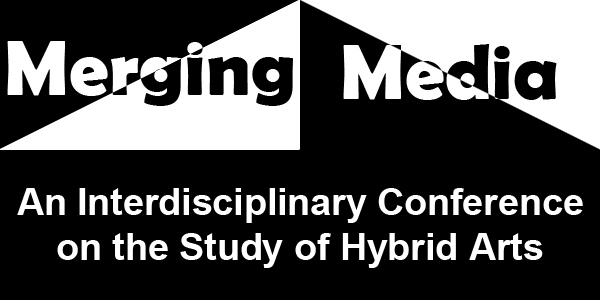9.30am Registration
10.00 Welcome and keynote speech
11.15 Break
11.30 Session 1
1.00pm Lunch and coffee
2.00 Session 2
3.30 Break
3.45 Session 3
5.15 – 6.00pm Drinks reception & closing remarks
Keynote speech – 10.00-11.15
Dr Duncan White (Central Saint Martins) – “The Dizziness of Freedom”: Some Notes on Falling in Artists’ Film
In his performance work, ‘The Boy who Fell Over Niagara Falls’, Bas Yan Ader began to develop an art practice around an on-going fantasy of falling. In his films Fall 1 and Fall 2 he attempted to realise this fantasy of falling. In this talk, I want to consider how this set of gestures (along with a number of other falling off points) can be read in relation to theories of the image and the event. What does this ‘return to nature’ (if that’s what it is) in which the artist does not make art so much as ‘subject himself to the forces of gravity’, tell us about concepts of experience, mediation and identity in an age ‘after the destruction of experience’? As well as Bas Yan Ader, the talk will include reference to the work of Carolee Schneemann, Yves Klein, Ana Mendieta and the Bureau of Inverse Technology.
Each paper will be 20 minutes, with 30 minutes at the end of the session for Q&A
Session 1 – 11.30-1.00
Panel 1A: Evolving Books and Libraries
Chair: Claire Hurley (University of Kent)
- Dennis Moser (University of Alaska Fairbanks) – ‘Everything Old is New … Again — The Continued and Evolving Intermediality of the Artist’s Book’
- David Devanny (University of Falmouth) – ‘The Reader as Performer: Decoding Responses to Digital Literatures’
- Inga Paterson & Alan Hooper (Glasgow School of Art) – ‘Non-Library What?’
Panel 1B: Appropriation & Incorporation
Chair: Alaina Schemp (University of Kent)
- Nathaniel Wong (Simon Fraser University) – ‘Remaking the Ready’
- Sabina Sitoianu (Independent Scholar) – ‘The impact of artistic incorporation of media layers on affective engagement and on our understanding of the index in Terminal Bar (Stephan Nedelman, 2002)’
- Zahra Tavassoli Zea (University of Kent) – ‘In search for the lost God in the ‘God-Art’ myth: a meditation on Godard’s triptych, Passion, Prénom Carmen and Je vous salue, Marie’
Panel 1C: Challenging Spaces
Chair: Katerina Flint-Nicol (University of Kent)
- Cristina Miranda de Almeida (University of the Basque Country and Internet Interdisciplinary Institute/UOC) – ‘ New materialities and sensibilities. Understanding Smart cities as hybrid ecologies for art experience’
- Graham Asker (London Metropolitan University) – ‘Exploring misperception of scale using digital and analogue media’
- Carl Smith (London Metropolitan University) – ‘Performing Context Engineering using Hybrid Spaces to Create New Forms of Consciousness’
Session 2 – 2.00-3.30
Panel 2A: Stage and Spectator
Chair: Stephanie Obermeier (University of Kent)
- Sarah Passfield (University of Kent) – ‘Affective dramaturgy – embodied spectatorship and choreographic practices in Dance Theatre: Liz Aggiss’ English Channel’
- Laura Vorwerg (Royal Holloway) – ‘An issue of Horse and Hound: hybridity and interdisciplinarity as creative solutions in A Dog’s Heart and War Horse’
- Agata Kolodziej (Jagiellonian University) – ‘Poetry as an Event. When Page on Stage meets the Audience’
Panel 2B: Locating Creativity
Chair: Jordan Amirkhani (University of Kent)
- Julian Ross (University of Leeds) – ‘Between Air Art and Japanese Expanded Cinema’
- Lewis Church (Queen Mary) – ‘The Lower East Side and Lydia Lunch’
- Claire Hurley (University of Kent) – ‘Workplace/ Home Space: Barbara Guest Writing out of the “Studio”’
Session 3 – 3.45-5.15
Panel 3A: Digital and Performance
Chair: Sarah Passfield (University of Kent)
- Jo Scott (Royal Central School of Speech and Drama) – ‘Inter-constructions: hybrid creative processes in live intermedial practice’
- Christophe Collard (Vrije Universiteit Brussel) – ‘Moving or Morphing Target? Hypermedial Hybrids, Diller & Scorfidio-Style’
- Ian Grant (University of West London) – ‘Digital Shadows: Performing Hybrid Shadow Theatre’
Panel 3B: Gaming Technologies and Beyond
Chair: Ben Hudson (University of Kent)
- Thomas Hale (University of Roehampton) – ‘Let’s Play: Celebration and Cynicism in Videogame Fan Production’
- Joseph Norman (Croydon School of Art) – ‘Speaking Landscapes’
- James Cockbill (University of Wolverhampton) – ‘Transmedial Aesthetics in Contemporary American Cinema Case Study: Avatar and L.A. Noire’
Panel 3C: Mass-media/Multi-media
Chair: Mark Windsor (University of Kent)
- Nicole Sierra (University of Oxford) – ‘Pictures that Don’t Move: Fiction, Mass Media, and Postmodern Pictorial Collage’
- John Hudson (University of Lincoln) – ‘Hybridization as a consequence of the Theatre of Totality’
- Caleb Turner (University of Kent) – ‘Avenging Movie Tie-Ins: Stretching The Superhero Narrative Trajectory Across Film Franchises (onto Television Episodes, Video Games, Graphic Novels, Online Spoilers and Beyond)’
